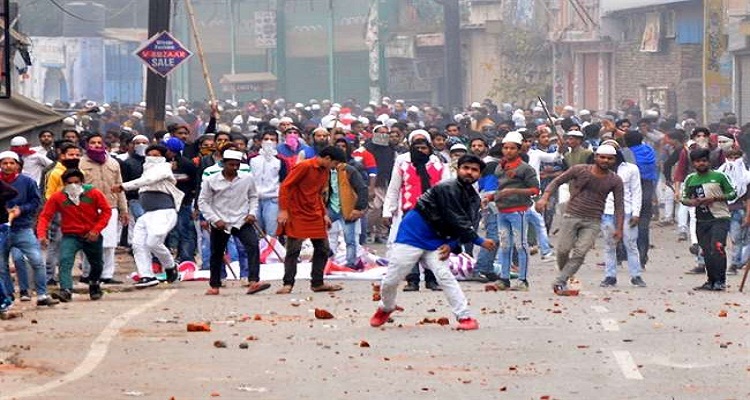The Delhi High Court on Friday said the report of the National Human Rights Commission (NHRC) suggested that the police did not handle itself “professionally” to deal with the violence at the Jamia Millia Islamia University during the anti-CAA protests when there was a law and order problem.
“It (NHRC) says law and order problem but it also says inculcate professionalism (in the police). It (report) indicates that it (incident) was not handled professionally,” a bench of Chief Justice DN Patel and Justice Prateek Jalan said.
The observation of the bench was in response to the contention of Additional Solicitor General (ASG) Aman Lekhi that the commission had given a finding that there was a law and order situation at the varsity and therefore, police entry into the campus was legitimate.
Also read: Delhi riots: Members of WhatsApp group created to avenge Hindus lost individuality: Court
The ASG, in response to the court’s observation, said the report only says that there were individual instances of police excesses and it did not say that the action as a whole was unwarranted.
He further said that the commission also left it to the police to enquire into the individual instances of transgression by its officers and not to an outside agency.
To this, the bench remarked: “That is fine. But it (report) cannot be read as a clean chit being given to anyone either.”
The high court was hearing of a batch of petitions which have alleged that ruthless and excessive use of force and aggression was unleashed by the police and paramilitary forces on students at the university.
The pleas have sought setting up of an SIT or a Commission of Inquiry (CoI) to look into the violence at JMI in December last year in relation to student protests against the Citizenship (Amendment) Act (CAA).
Opposing the petitioners’ allegations, Lekhi argued that while they claim police action was unwarranted, the NHRC report does not say so.
He further said the police action as a whole was “not disproportionate” to the violence in the campus and only in some isolated instances there was a use of disproportionate force.
However, an enquiry into these isolated instances have been left to the police by the NHRC and this indicates that the agency could be trusted, contrary to what the petitioners are claiming, he said.
He also said while petitioners claim the protests were peaceful, the NHRC report referred to it as “violent”.
The ASG also reiterated his argument made on the last date of hearing, August 14, that police had entered the university to restore order which was disrupted by incidents of arson and destruction of public property during the student protests.
Lekhi will continue his arguments on August 28.
Discussions
Discussions
